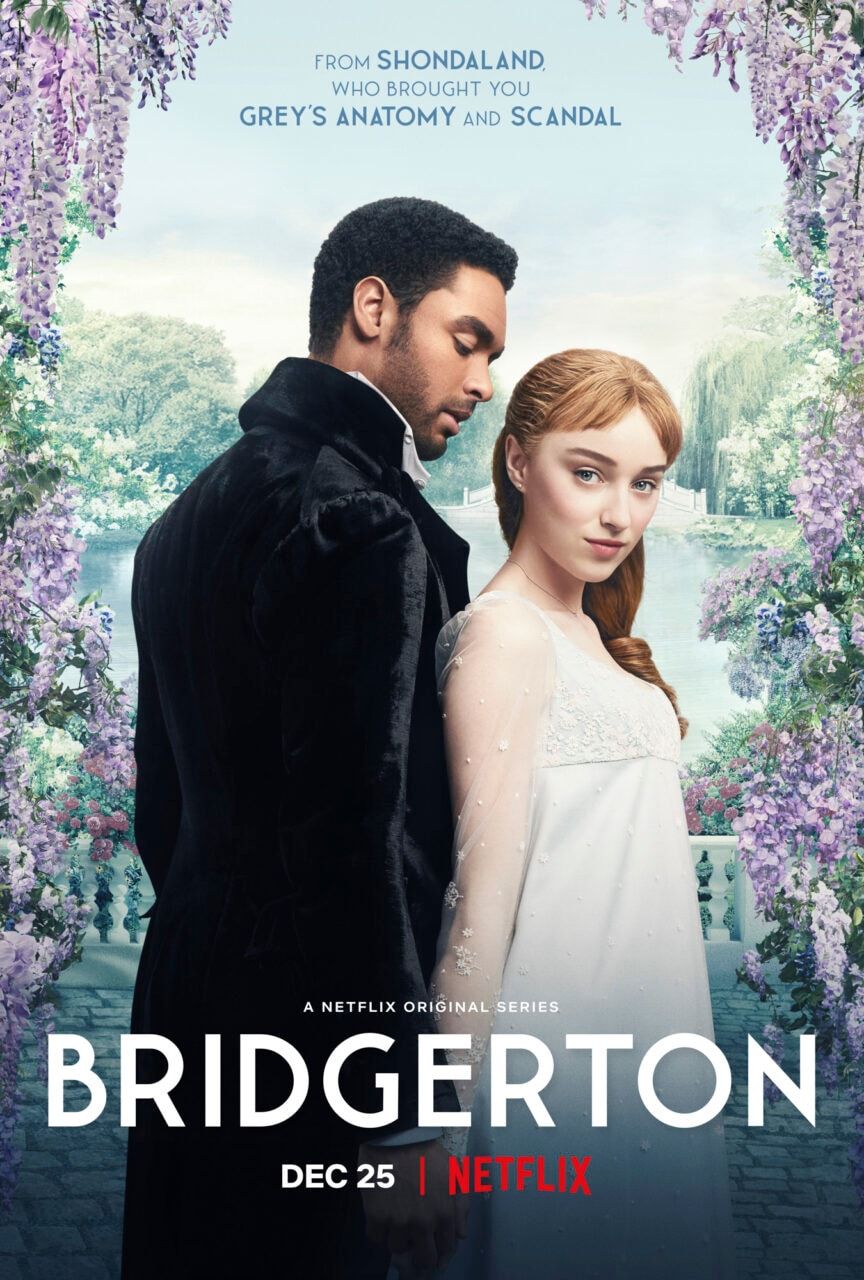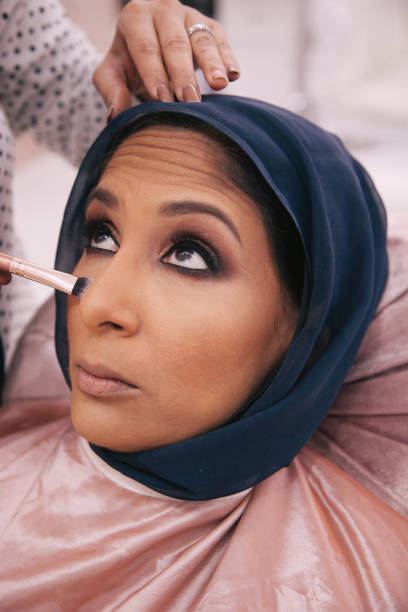Bridgerton is a Modern Feminist Critique of the Past
We’ve all seen or heard about ‘Bridgerton’ – the Netflix regency style romance TV show which is an adaptation of Julia Quinn’s eight-part book series. “Bridgerton” took the world by surprise with its intense modern spin on a 19th century period drama. Underneath the show’s extravagant portrayal of Victorian aristocratic society is a blade-cutting modern critique of the heavily patriarchal culture of the time. Packed in this household TV series are themes of love, romance and feminism which make us reflect on whether or not today’s society is really different from what it was back then. The prominent theme in this show is the place of women in society and this is evident in the lack of agency displayed by the women characters who are groomed to have only one goal in life; to get married.
Muslim women, especially, can relate to most of the customs displayed in the show. ‘Bridgerton’ is narrated by an anonymous writer who publishes her stories under the pen-name Lady Whistledown. She is a member of the English aristocratic class whose work exposes the hypocrisy and drama behind the society’s love and marriage market scene. Even though her writings seem to be a pain in the neck for the members of this society, the women in this show always eagerly await the latest Lady Whistledown news publication to bond over new gossip and exposed secrets. The anonymity of Lady Whistledown, however, tells us that she would have been banished from society had she not hidden her identity.
Chaperone Versus Mahram
One of the first things to be noticed in this TV series is that Anthony Bridgerton is the patriarch of his home, ruling over his mother and sisters and making decisions on their behalf. This position makes it possible for him to impose decisions that have absolutely nothing to do with his life, but everything to do with the women in his life, without recourse to their feelings or the implications. This is evident when Anthony agrees to marry his sister, Daphne, off to Nigel Berbrook, a suitor she detests so much. In one of the scenes, we see Nigel Berbrook objectifying the proposed bride, telling the Duke of Hastings that it doesn’t matter if Daphne doesn’t want to marry him; what matters is that her brother has given her out to him. In his words, “If I want to buy a horse, I don’t negotiate with the horse, I negotiate with the owner of the horse“. What this signifies is that women were objects owned by men and could be disposed of as they pleased. Daphne’s protests fall on her brother’s deaf ears, and it takes the intervention of the Duke of Hastings and the wit of Lady Bridgerton herself, to save Daphne from the implications of her brother’s foolish decision.
While the duty of a Mahram in Islam is to ensure that every decision a woman makes in terms of marriage is in her best interest, a marriage in which the wife does not give her wholehearted consent is invalid. Sadly, we see this objectification and ownership of women displayed in a lot of Muslim communities. Some Mahrams assume that they have the right to choose spouses for the women in their lives, taking away their agency and forcing them into undesirable unions; an orientation that is completely against the teachings of Islam.
The 19th century English culture as depicted also demands that a young lady should not be sighted with a man in seclusion without a chaperone, otherwise, her reputation would be destroyed for life. While this is a sacrosanct rule in gender relations within the Islamic culture, the double-standard displayed is, unfortunately, a reflection of most Muslim societies today. If the rule applies to both genders, that they should in fact, not be in seclusion except with a chaperone, how is it that such violation smears only the name of the woman in this situation, while the man prances around with his head high, unaffected by such scandal?
Sex Education and Sexuality
As evident in a lot of Muslim communities today, there’s still a taboo associated with sex education in the home. Many Muslim women can relate to being prepared for marriage without being taught the most important thing in marriage; SEX! 21-year-old Daphne Bridgerton made her debut into high society and the marriage market by declaring herself ready and eligible for marriage. But alas! she knows not a single thing about the act of marital intimacy. Having been denied this knowledge in her own home, she takes her curiosity outside the home, asking the Duke of Hastings, whom she assumed had no romantic interest in her, to tell her how children are made. And although the Duke advises her to explore her own body parts and discover what gives her pleasure, the fact remains that her innocence and curiosity could have been taken advantage of by the ill-hearted.
Lady Bridgerton finds it difficult to explain the act of sexual intimacy to her own daughter, leaving the poor girl ignorant of what should otherwise have been the most important thing to know. We see how her ignorance plays out weeks into her marriage when she finally discovers that her husband’s withdrawal at the pinnacle of sexual pleasure was in fact, the main reason why they would never have a child. One of my favourite scenes is when Daphne’s younger sister, Eloise, barges into her family living room and audaciously asks, “how does a woman come to be with child?!” Lady Bridgerton appeared shocked and tried to shut her up as quickly as possible.
This coy attitude towards sexual matters and sex education itself is very much present in Muslim communities, but fortunately, it cannot be pinned on Islam. There are lots of Prophetic traditions that teach Muslims how to have sex. The wives of the Prophet (PBUH) were, as a matter of fact, unapologetic in their descriptions of the act of sexual intimacy between a husband and a wife. It is therefore sad that just like Lady Bridgerton, lots of Muslim women, even till this day, consider the topic of sex to be shameful or taboo and something not to be talked about.
One thing we’re quick to notice in the show is that once the act of sexual Intimacy had been explained to Daphne, she throws herself fully into it and enjoys it unapologetically. This is quite progressive for a 19th-century English society, but Muslim women do have one thing to learn from this; the act of sexual intimacy is a marital right, one that should be enjoyed without shame.
Is “Bridgerton” Sex Good Sex?
For what it’s worth, it’s important to discuss the sex scenes in ‘Bridgerton’ and analyse whether or not they are a representation of what good sex should look like. In this writer’s humble opinion, ‘Bridgerton’ sex is terrible and should never be a model or a “how-to” manual for sex. This is especially in relation to female orgasm because as women, we deserve better. Bad sex scenes are unfortunately common in a lot of TV shows and ‘Bridgerton’ is not an exception. We see this on the wedding night of Daphne Bridgerton and the Duke of Hastings; from the rather brief kiss to the immediate tugging at Daphne’s skirt to unravel her clitoris. There is everything wrong with this! And the part where he tells her “this will hurt a moment”, then goes on humping and jack-hammering all the way… No woman ever enjoys having sex this way and this truth has to be told! Daphne definitely didn’t feel ‘wonderful’ as she said. Sensuality in ‘Bridgerton’ has more to do with the scenery and emotions evoked than the actual act of sexual intimacy itself. We see this clearly when Daphne and the Duke of Hastings decide to make love on the stairs of a garden veranda in the rain. In truth, the scene of sexual intercourse in addition to a man’s sexy naked torso does not automatically amount to good, orgasmic sex for women.
Rape and Consent
With the evolution of the ‘me-too movement came the redefinition of what ‘consent’ entails in sexual relations. One of the rules of consensual sex is that consent is a vital ingredient and must be present before, during and after the act. This implies that consent given before the act of sexual intercourse can be revoked during the act. If consent has been revoked at any point during sexual intercourse by either of the parties and the other party proceeds despite clear communication of the revocation of consent, then this act will amount to ‘rape’. One very disturbing scene in Bridgerton is the part where Daphne discovers the reason why the Duke of Hastings has been withdrawing at the pinnacle of pleasure and proceeds to force him to have full sex without withdrawal. It was clear that the Duke asked her to ‘stop’. He pleaded with her to let him withdraw but she refused and went ahead. While Daphne may have felt deceived by the Duke’s supposed inability to have children, this feeling of betrayal was not enough reason to force a man to discharge his sperm into her without his consent. It was more disturbing that the TV show went ahead to portray Daphne as a victim of deception, ignoring the fact that what she did was unacceptable.
If the tables were turned, perhaps the presence of ‘rape’ in this scene would have been easier to recognise. We should, however, not forget the fact that men can as much as women be rape victims and this should never be acceptable.
Pluralistic Feminism
Beneath the steamy romance in ‘Bridgerton’ is a piercing criticism of toxic patriarchal customs. The women in the show are groomed to attain only one life goal; MARRIAGE! However, we see some acts of defiance in the daring character of Lady Whistledown and the outspoken and witty nature of Eloise Bridgerton who constantly questions norms that seem unfair to her. Eloise dares to dream beyond what society expects of her. She seeks the freedom that men have; the freedom to make their own choices. She wants to “fly” – attend university and not have to parade herself in the marriage market like her sister, Daphne. But because this is 19th century England, Eloise can only express her wishes to her best friend, Penelope. Like many Muslim women today, Eloise dares to express her thoughts and speak up against unfair patriarchal customs. And even when she knows that her voice doesn’t matter much in the 19th-century society to which she belongs, she doesn’t stop speaking up.
Eloise is, however, not the only feminist in this TV show. While Daphne’s silent acceptance of the traditions of marriage as a woman’s only goal pales in comparison to Eloise’s outspoken defiance, Daphne’s choice of love and marriage is as feminist as any other choice. She stands up for herself as many times as she needed to. She believed in her agency as a woman, even in her choice of marriage and spoke for herself against those who dared to challenge that. She blatantly rejects her brother’s choice of Nigel Berbrook as a spouse for her and defied the culture of being the obedient, submissive wife that her society expected her to be. It is important to highlight that feminism today is about a woman’s right to agency and self-determination and we see a plurality of this in Netflix’s ‘Bridgerton’.




